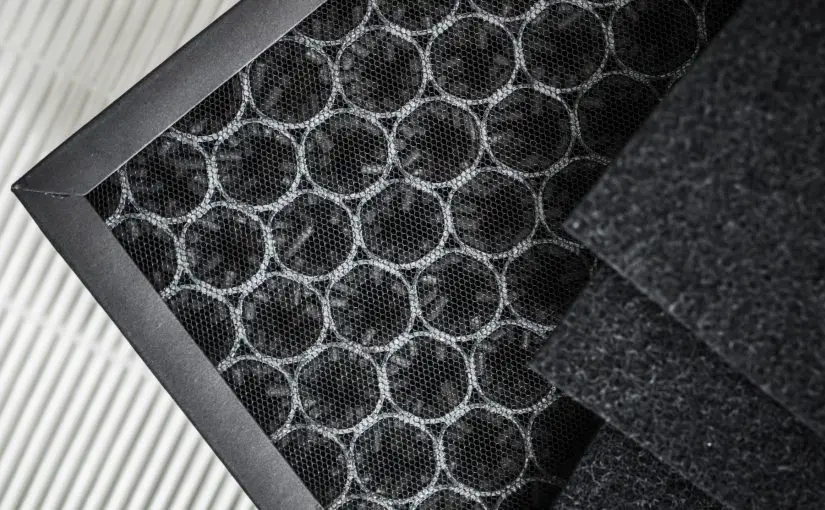Table of Contents
Do HEPA air purifiers really work? The truth revealed
HEPA (High Efficiency Particulate Air) air purifiers can be highly effective at removing harmful particles from the air when used properly. HEPA filters are designed to capture 99.97% of particles sized 0.3 microns or larger, including dust, pollen, mold spores, bacteria, and more. Here’s a closer look at how HEPA air purifiers work and why they can make a real difference in indoor air quality.
How HEPA Air Purifiers Work
HEPA air purifiers draw air through a fine mesh filter that traps particles as air passes through. The filters have dense folds of fiberglass or synthetic material that particles cannot penetrate. As air is forced through these tightly packed layers, particles are captured on the fibers.
Only air purifiers certified to meet strict HEPA standards can remove 99.97% of 0.3-micron particles in a single pass. True HEPA filters exceed the 300 Grade standard defined by the Institute of Environmental Sciences and Technology.
Why Size Matters
HEPA filters are designed to capture the smallest particles that can be inhaled deep into the lungs. Research shows that exposure to fine particulate matter 2.5 microns or smaller (PM2.5) poses the greatest health risks.
PM2.5 refers to particles 30 times smaller than the width of a human hair. These minuscule particles can slip past our body’s defenses and penetrate deep into the lungs, entering the bloodstream. HEPA filtration targets these harmful tiny particles.
Effectiveness for Allergies and Asthma
HEPA air purifiers excel at removing allergens like pollen, mold spores, pet dander, and dust mites. By eliminating these triggers from the air, HEPA filters can provide relief for allergy and asthma sufferers.
A study published in the Annals of Allergy, Asthma & Immunology demonstrated that HEPA air cleaners dramatically reduced asthma symptoms for children sensitive to dust mites. The air purifiers lowered asthma medication use by 79%.
Capturing Viruses, Bacteria, and More
In addition to allergens and asthma triggers, HEPA filters capture airborne viruses, bacteria, smoke, and other bioaerosols. HEPA air purifiers installed in hospitals have been shown to reduce infections in high-risk areas.
During wildfires or in areas with high pollution, HEPA filters can remove hazardous fine particles from smoke and smog. The ultra-fine particle trapping abilities make these filters helpful for protecting indoor air quality.
 Considerations for Effectiveness
Considerations for Effectiveness
To realize the full benefits of HEPA filtration, consider these factors:
- Room size – Choose an appropriately sized unit for the room.
- Air changes per hour (ACH) – Look for a clean air delivery rate (CADR) that will filter the room’s air at least 2-4 times per hour.
- Proper maintenance – Replace filters as needed to maintain performance.
- Whole-home systems – For maximum air purification, install HEPA filters in central HVAC systems.
The Bottom Line
HEPA air purifiers absolutely can make a noticeable difference in removing allergens, pollutants, viruses, and ultrafine particles from the air when properly matched to room size and well maintained. By trapping the smallest respirable particles, HEPA filters can significantly improve indoor air quality.
FAQ
What is a HEPA filter?
HEPA stands for high-efficiency particulate air. HEPA filters are designed to remove 99.97% of particles 0.3 microns or larger from the air that passes through.
How small of particles can HEPA filters remove?
HEPA filters are effective at capturing particles as small as 0.3 microns. This includes dust, pollen, pet dander, mold spores, bacteria, viruses, and fine particulate matter from smoke and pollution.
Are HEPA filters better than regular filters?
Yes, HEPA filters are far superior to conventional filters. Only true HEPA filters certified to stringent standards can remove 99.97% of the most penetrating particle size of 0.3 microns.
Can HEPA filters protect against COVID-19?
Studies show HEPA filters capture over 99% of the tiny droplets that may contain SARS-CoV-2 virus particles. Portable HEPA air purifiers can help reduce airborne transmission risks.
How often should you replace a HEPA filter?
HEPA filters should be replaced every 12-18 months for optimal performance. Check manufacturer recommendations, as replace frequency varies by model.
Do HEPA filters use a lot of electricity?
HEPA air purifiers vary in energy use from 30 watts for small units up to 500+ watts for large, high-power models. Look for ENERGY STAR certified models for efficiency.
Can HEPA filters remove VOCs?
HEPA filters do not effectively remove VOCs (volatile organic compounds). To reduce VOCs, look for models with activated carbon or other gas-phase filtration.
Learn more about HEPA filters on EPA.gov

